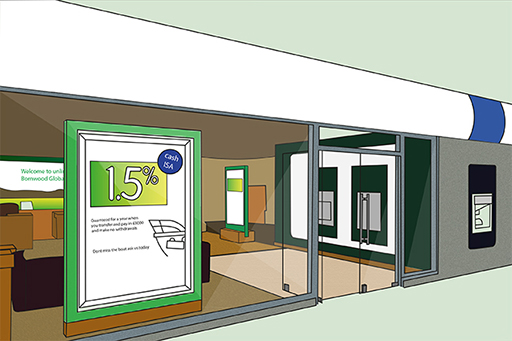6 The savings supermarket: some final points
Current accounts can earn you interest too
Some of the most attractive interest rates on paper are via specialist current accounts where the interest paid can be much higher than on standard savings accounts. There are, though, some important caveats.
- To get these attractive interest rates you normally have to commit to a minimum deposit (say, £1,000) into the current account each month. In effect this is a ploy to get you to pay in your monthly salary or pension. This helps to ensure a regular, reliable and perhaps fair-sized cash inflow into the account - so it’s a neat way for the bank to get in funds and get you to use it as your main current account.
- There are limits on the maximum balance on which the high interest rate is paid – say £2,500. This prevents people from placing huge balances into these current accounts – something which would be very costly to the banks. Therefore, for many people they are simply a way to earn interest on your monthly incomings (which may later go out as bills).
- You may need to pay out a certain number of direct debits per month. Again, this is a ploy to make you use this as your main current account and not a savings account.
You may want to use your current account as a way to save some of your money. However, the interest you could earn should be used as one of the factors to help you select a current account, rather than determine your savings strategy.
How do I want to operate my accounts?
Finally, you need to check out the way you can operate your savings account. Check if it’s an online only account (increasingly savings accounts are online only) or can you also use the account in a branch (good if you like transacting face-to-face) or perhaps you can operate the account by post (although this has become very outdated). Do check these features when opening a new account. Online only accounts may offer a marginally higher rate than those which can be operated in additional ways, as these are cheaper for banks and building societies to run.

